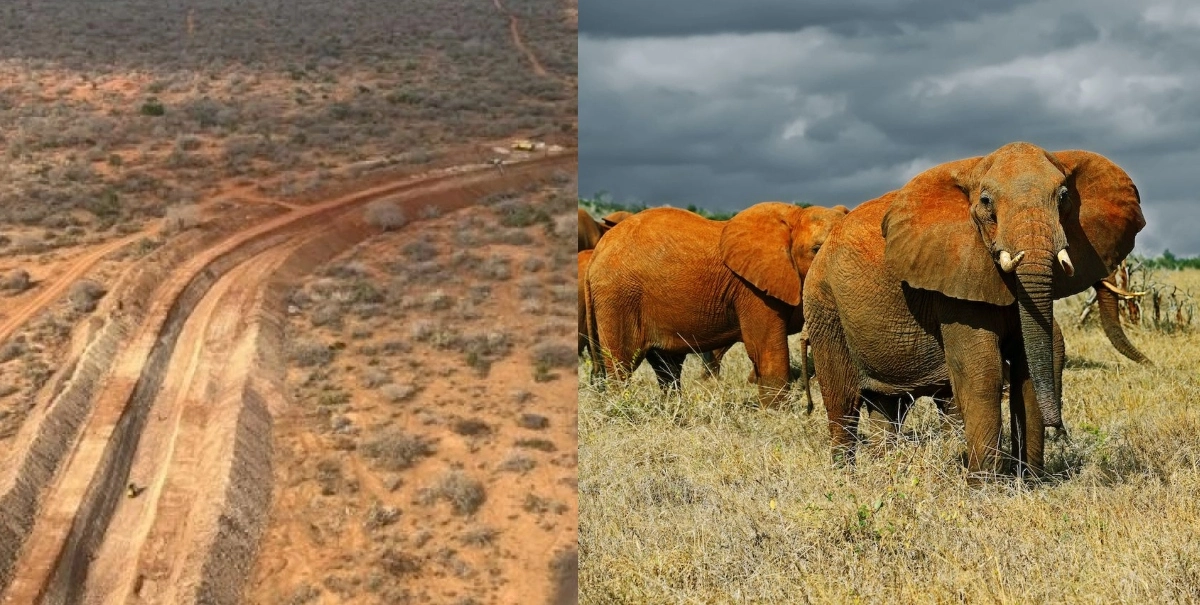The Kenya Wildlife Services (KWS) has denied allegations of mining activities taking place in Tsavo East National Park. This is after reports emerged that there are mining activities at the National Park, which is one of the main tourist destinations in the country.
Amidst the backdrop of a statement by KWS on mining claims, there is general concern over activities in Africa. Despite the shift to green energy and calls towards climate action, oil companies and multinational corporations remain at the forefront in leading a renewed search for natural resources in the continent.
Africa Under Siege
The Nairobi National Park (NNP), uniquely located within the capital city, has not been immune to encroachment. Both private and public sectors have shown intense interest in this area.
Developments, including the Standard Gauge Railway (SGR) cutting through the park and potential hotel constructions, are a testament to this intrusion.
In neighbouring Uganda, French energy giant TotalEnergies is still pushing ahead with its Tilenga drilling project in Uganda. The $10-billion project involves drilling more than 400 oil wells in western Uganda – many of them in Murchison Falls Nature Park, a biodiversity reserve and the country’s largest national park.
Environmentalists say the project is already severely impacting wildlife and the fragile ecosystem in the park, just a year after drilling began and before production gets underway next year.
In February, the Republic of Congo gave the green light to oil exploration in Conkouati-Douli National Park, the country’s most biodiverse protected area and home to fishing communities since at least the 13th century. Odzala-Kokoua National Park is part of UNESCO’s World Heritage List.
READ: A Heartfelt Plea For Nairobi National Park’s Dwindling Wildlife
KWS: Tsavo is Safe
In a statement on Tuesday, KWS said the images shared online are from the Galana Kulalu Food Security Project located in Galana Ranch adjacent to Tsavo East National Park.
“Kenya Wildlife Service (KWS) wishes to dispel false information circulating on social media regarding alleged mining activities in the Tsavo East National Park. We wish to clarify that the images being shared online are not from the said Tsavo East National Park and that there are no mining activities taking place there,” KWS said on the recent mining allegations.
KWS assured that the images published online showing mining activities are from the Galana Kulalu Food Security Project overseen by the Agricultural Development Corporation (ADC).
The Galana Kulalu Food Security Project being spearheaded by the State Department of Irrigation is aimed at enhancing food security across the country through large-scale irrigation and sustainable farming practices.
An Elephant Walking on Thorns?
Despite the pressure from Global North’s demand for resources, Kenya is making strides in creating checks and counterbalances to prevent further environmental degradation.
Illegal exploration, exploitation, and dealing in minerals are penalized through a fine of up to Ksh10 million ($76,929) or a jail term of two years or both under the Mining Act 2016.
In April, a special police unit was deployed to end widespread illegal exploration of minerals across the country.
The Mining Police Unit is under the command of the Inspectorate of Mines.
Finite Supply vs Infinite Demand
Global North, scampering for resources to satiate its expansion, is preaching climate change but their actions paint a very different picture in the indulgent exploitation of the Global South, desperate to keep up and feed its growing population, as humanity strives to tackle the big question of scarcity in an ever-expanding world.
















